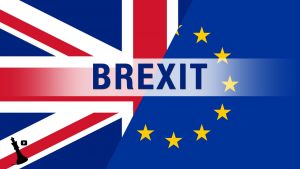 LONDON: Global credit rating agency, news publisher and data analytics provider, AM Best has said that from an operational point of view, the United Kingdom’s departure from the European Union on 31 January 2020 will have little immediate impact on insurers in the U.K. and EU that it rates.
LONDON: Global credit rating agency, news publisher and data analytics provider, AM Best has said that from an operational point of view, the United Kingdom’s departure from the European Union on 31 January 2020 will have little immediate impact on insurers in the U.K. and EU that it rates.
However, it adds that trade negotiations and regulatory decisions will dictate the longer term impact of Brexit on insurers.
In a new Best’s Commentary, “Brexit Bells Ring For UK and EU Insurers”, AM Best notes that during the 11-month post-Brexit transition period, U.K. insurers will be able to underwrite European Economic Area (EEA) business via existing passporting rights and EEA insurers will retain access to the U.K. market.
At the end of the transition period, passporting rights that currently exist between the U.K. and the EEA are expected to cease.
Catherine Thomas, senior director, analytics, said, “Most U.K.-domiciled insurers that have made use of passporting rights, such as Lloyd’s, London market and other commercial lines writers, have already put in place arrangements to ensure that they are able to continue EEA operations at the end of the transition period. In many cases, this has taken the form of new EU-domiciled subsidiaries.”
Thomas adds that the U.K.’s temporary permissions regime, which allows EEA insurers to continue to operate for up to three years after the U.K.’s withdrawal from the EU, will give those insurers that currently use passporting rights to operate in the U.K. time to adapt.
In AM Best’s opinion, the U.K. is well-placed to achieve Solvency II equivalence. Mathilde Jakobsen, director, analytics, said, “There is potential for precise solvency and regulatory requirements in the U.K. and EU to diverge, but this would not necessarily preclude the U.K. from achieving Solvency II equivalence.”
Jakobsen adds that the European Commission has stated that third-country regimes do not need to be identical to the EU framework, but they do need to ensure in full the outcomes as set out in the framework.
Edited by Kiran Khan